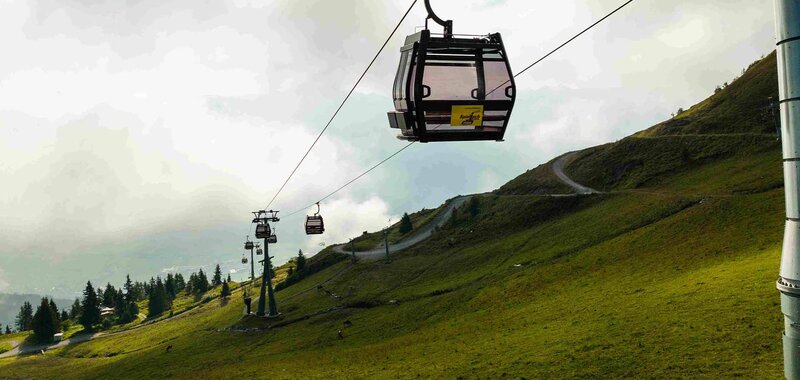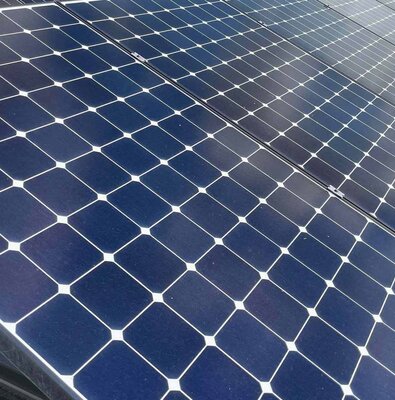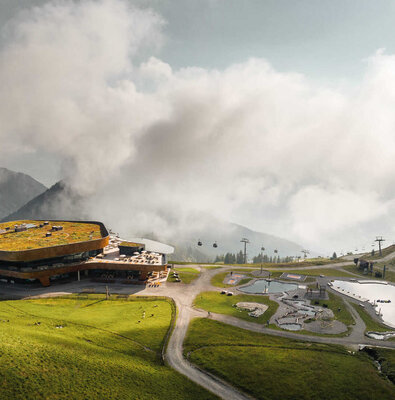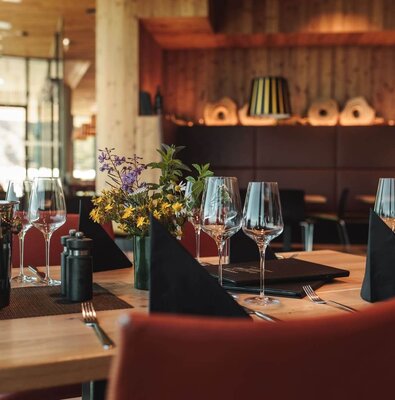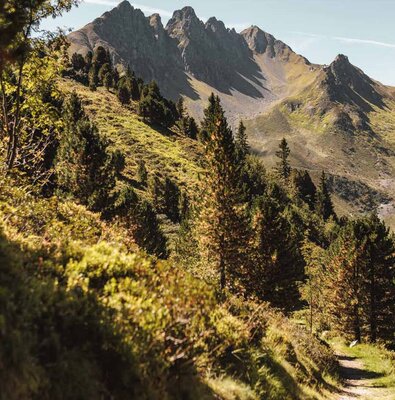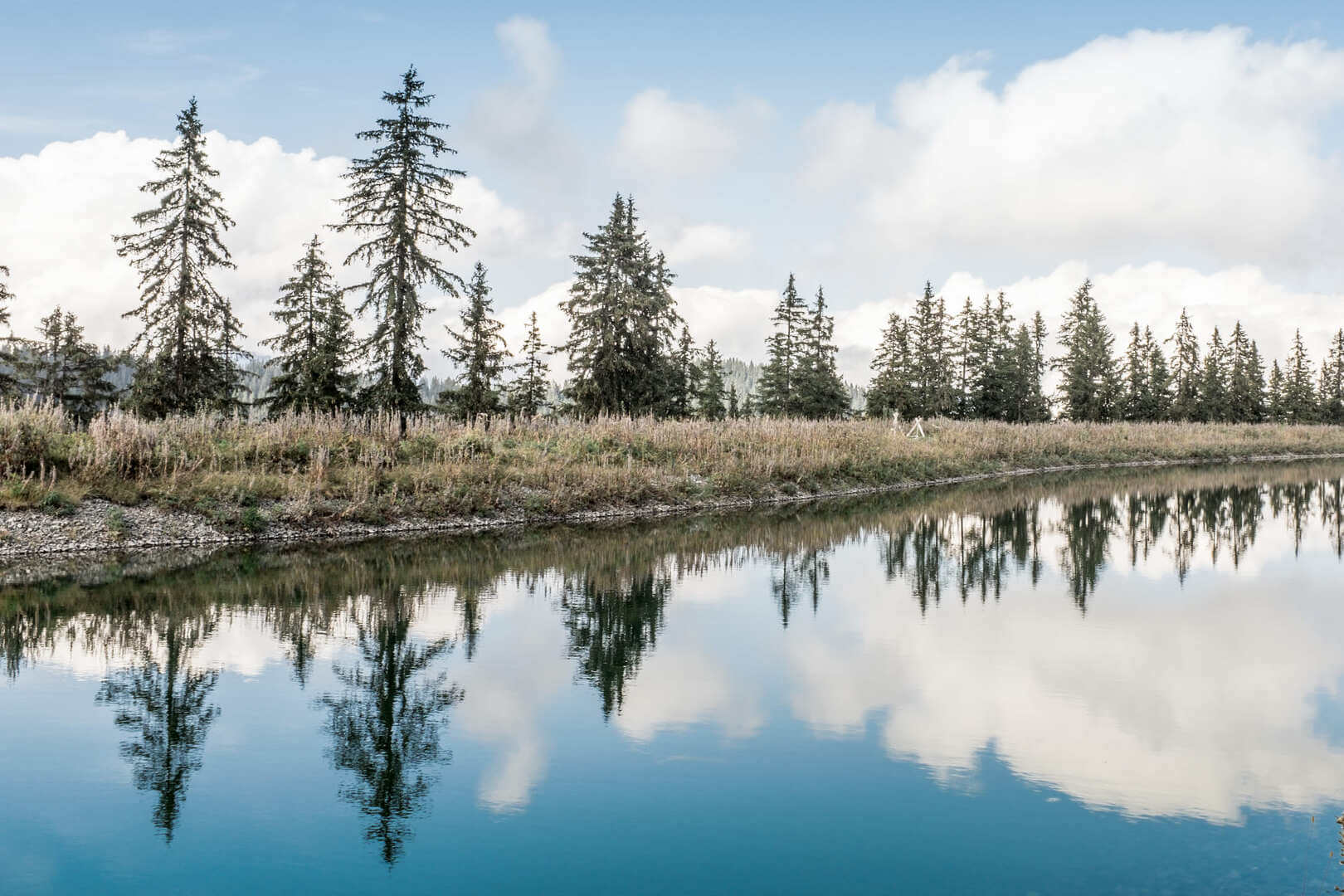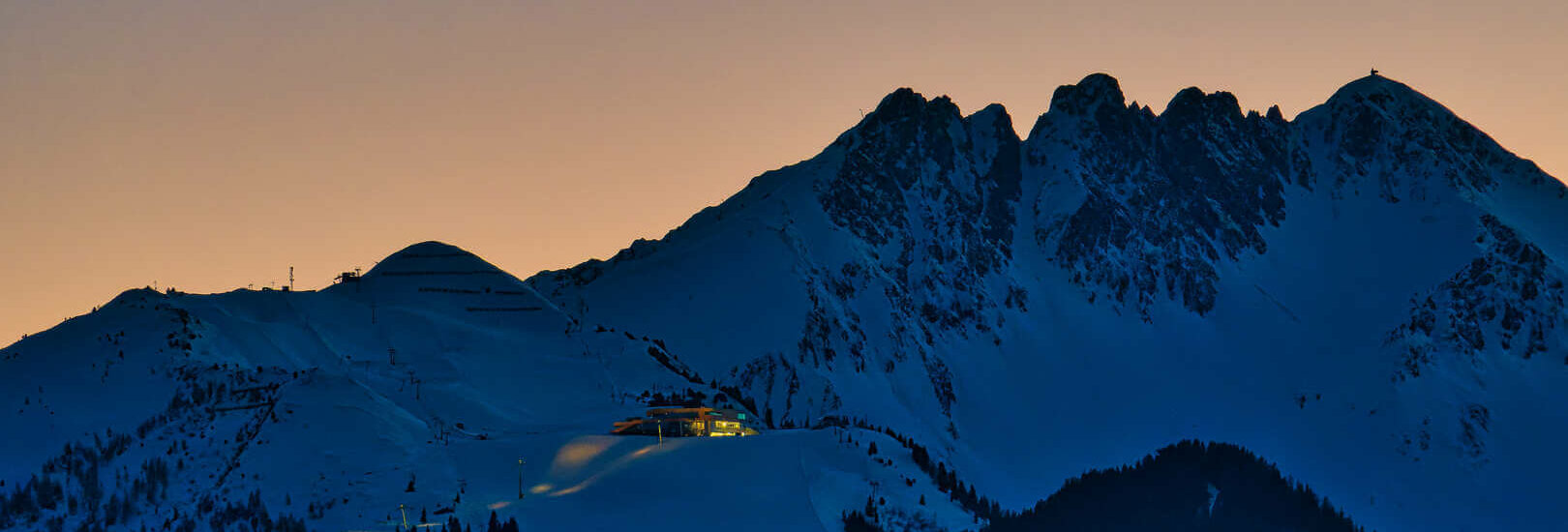The Spieljochbahn and the entire Schultz Group place a special emphasis on environmentally conscious and resource-efficient operation. Various sustainable initiatives have been implemented to ensure this. The Spieljochbahn was recently awarded by TÜV Austria and now holds the ISO 14001 certification for environmentally conscious and sustainable business practices.
Sustainability
Environmental Awards
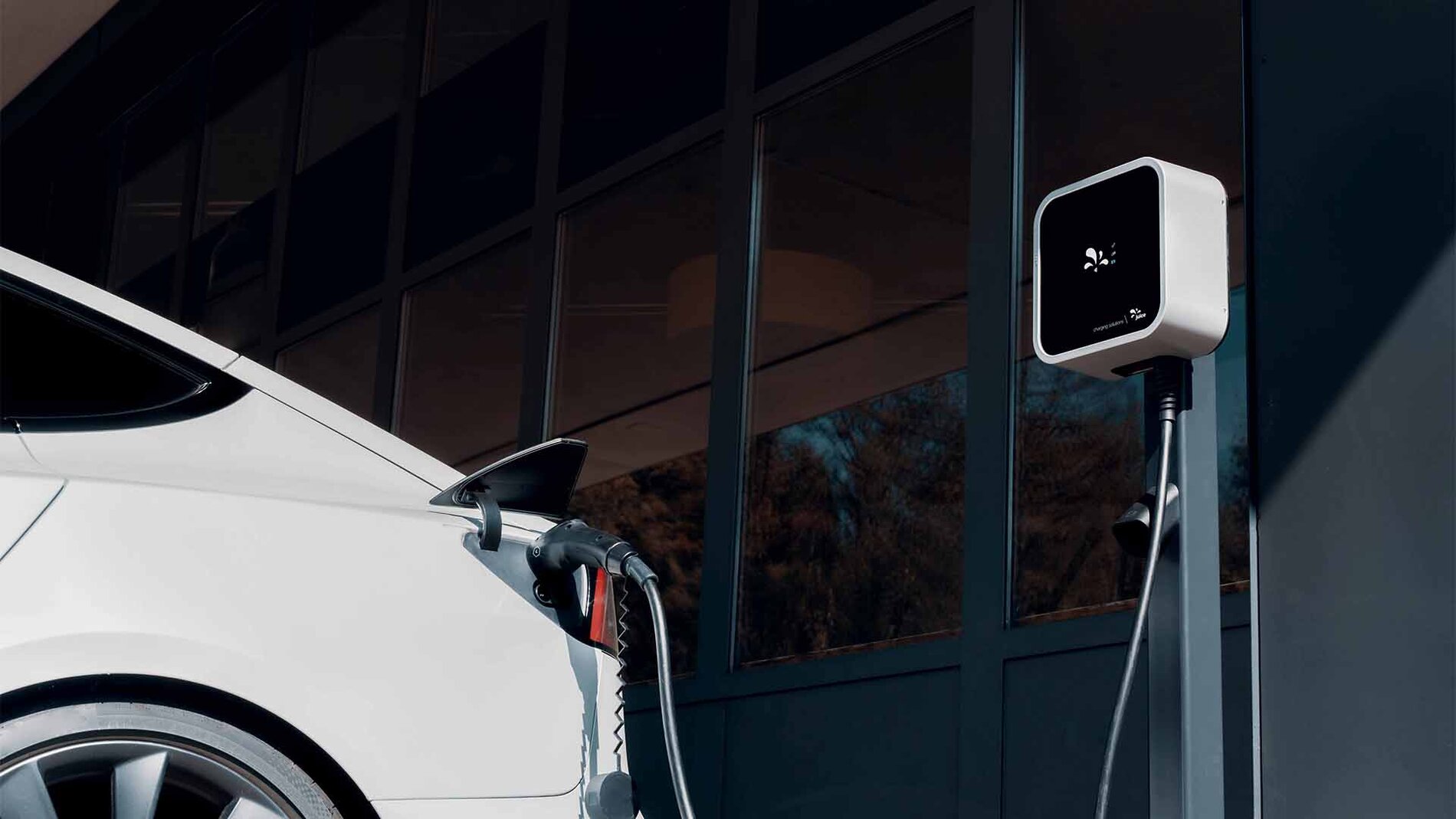
Mobility
- 4 electric charging stations with 8 parking spaces and up to 200 kW power
- Free ski buses + Zillertal Railway with ski pass
- Collaborations with ÖBB (Nightjet to the snow)
- Zillertal Mobility Plan
Energy-Overview

Cuisine
Naturally, locally, and seasonally
Products from local farmers and domestic butcher shops, such as Kammerlander Butcher from Kaltenbach
Wild game from our own hunting in the Karwendel and Rofan Mountains
Milk and cheese products from our own agriculture and dairy in the Zillertal
Snow management
A great help and environmentally friendly support is provided by GPS for snow depth measurement in all snow groomers. The digital snow depth measurement contributes to the efficient use of artificial snow and ensures that snow is only produced where it is really needed. This reduces water consumption, minimizes operating hours of snow groomers for piste preparation and minimizes damage to the terrain.
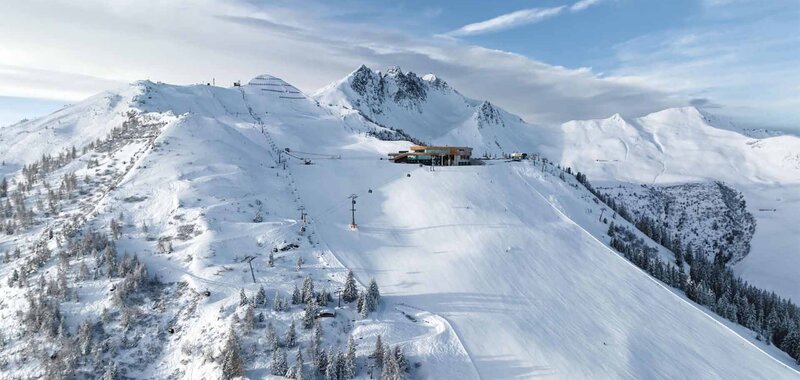
Environment
Environmentally friendly slope construction:
Ecologically valuable grass turf is carefully removed and repositioned in the correct direction.
Natural architecture:
"In the high alpine area, the challenge in planning is to create architecture that is sustainable and in harmony with the surrounding nature. For this very reason, the components of the stations at Spieljoch were made in wood to the greatest possible extent. Static elements, facades, and interiors were made from locally produced wood using craftsmanship from regional companies."
Architect Bernhard Stoehr
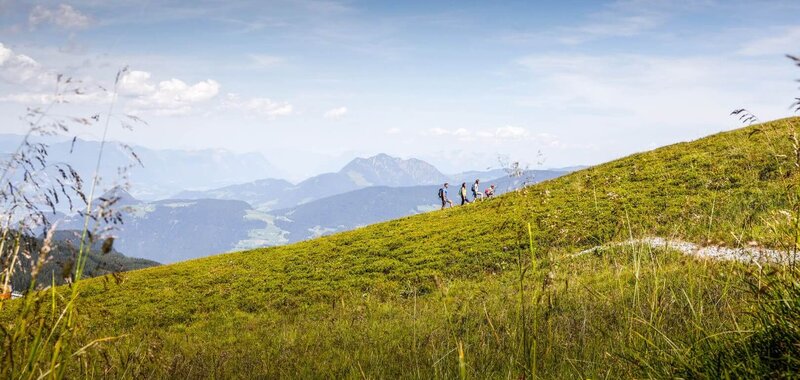
FACTS VS MYTHS
The electricity consumption of all cable cars in Austria is 750 GWh (= only 1.2% of the total domestic energy demand), including technical snowmaking. In Austria alone, more than 800 GWh per year are wasted due to standby losses.
About 525,000 kWh per winter are needed to technically snow a ski resort with 30 hectares of slopes. For comparison: A municipal indoor swimming pool has a demand of about 750,000 kWh per year.
A total of almost 125,900 full-time jobs are secured by Austria's cable car industry. 17,100 directly at the cable car companies and 108,800 jobs in directly benefited industries or indirect upstream industries.
The total energy consumption per skier and day (for cable cars, snowmaking, slope grooming, catering, heating, and infrastructure) is 18.0 kWh.
FOR COMPARISON:
- A ride with a modern mid-size car (7 liters per 100 km) from Strass in the Zillertal to Hippach with a distance of 26 km and a travel time of about 23 minutes equals a full day of skiing.
- 1/2 hour of jet skiing at the sea = 7 days of skiing.
- If a person flies from Vienna to Palma de Mallorca, they could go skiing in Austria for 30 days for the same amount of energy expended.
- If a person flies 8,906 km from Vienna to the Caribbean, they could go skiing in Austria for 105 days for the same amount of energy expended AND take a cable car for mountain hikes every day in the summer from July to September.
- If a person travels 7,780 km with a mid-sized modern cruise ship from Hamburg to New York, they could go skiing in Austria for 351 days for the same amount of energy expended.
SOCIAL SUSTAINABILITY
- Social responsibility for the region and towards employees
- Consideration of the interests of the local population
- Involvement of regional stakeholders in relevant projects
- Creation of good working conditions
- Consideration of local identity
- Enabling unique experiences and moments in an intact nature for everyone
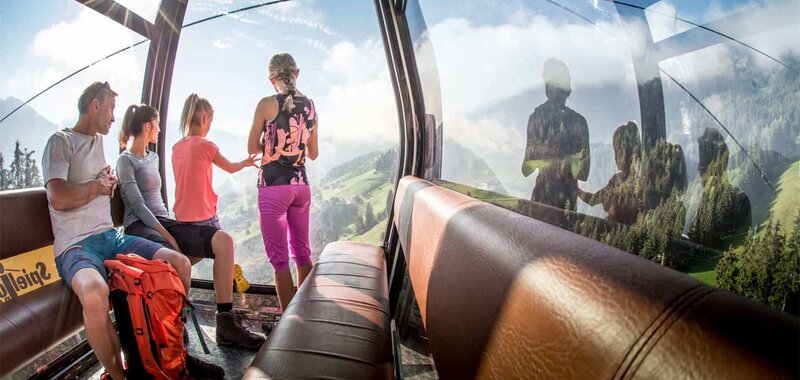
ECONOMIC SUSTAINABILITY
- Ensuring the necessary resource endowment for sustainable tourism projects in the medium and long term
- Meeting the needs and inclusion in marketing to sufficient market demand through sustainable tourism products
- Many collaborations with local businesses, such as craftsmen to food producers - economic value creation remains largely in the region
- Operation and processing of local products to strengthen local economic structures and at the same time minimize transportation costs
